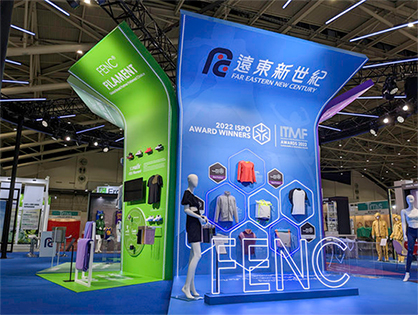Recycling / Circular Economy
Far Eastern New Century aims for zero waste and low carbon emission through circular economy
FENC integrated multiple resources and environmentally friendly products from FENC vertical chain, developing high performance functional and sustainable fabrics for international brands. Not only satisfy the everyday wear of end consumers, FENC also had been a major supplier at global sporting events.

FENC® TOPGREEN® rTEX Spun Yarn, transforms the textile wastes from the factory floors into a sustainable 100% recycled polyester and 100% recycled cotton yarns without any chemical treatment.
FENC® TOPGREEN® rTEX Filament, it is essentially a fabric recycled polyester filament. The fabrics scraps and used clothes with go through a process of sorting, shredding, melting, pelletizing and spinning. This solution has been adopted by international brands and will be launched in sportswear category in 2023.
FENC® TOPGREEN® Bio3 PET utilizes LanzaTech CCU technology that transforms industrial waste gas into low carbon ethylene glycol (EG), which then turn into brand new polyester. FENC® TOPGREEN® Bio3 solution was recognized by winning the ISPO Textrends Awards "Best Product" and International Textile Manufacturers Federation (ITMF) "Sustainability & Innovation Awards" in 2022, the world's first fabric made from waste gas reuse technology & N66 solution dye.
Since 2016, FENC has been partnering with adidas and Parley for the Oceans, turning waste PET bottles from the ocean into sneakers and sportswear. In 2022, sports jerseys made with recycled ocean plastic will debut at the FIFA World Cup. This collaboration was applied to nine national team kits, including Germany, Belgium, Spain, Argentina, Japan, Mexico, Wales, Colombia, Chile, and other national teams in the qualifying rounds. The strength of the fabric adheres strictly to bursting tests and actual strenuous wear test by the players bringing multiple benefits to enhanced performance.
Actions towards net-zero cannot wait, and FENC is answering the call to reach this global vision. With 2020 as the baseline, FENC's production business plans to reduce emissions by 20% by 2025, 40% by 2030 and commits to achieving net zero by 2050.
